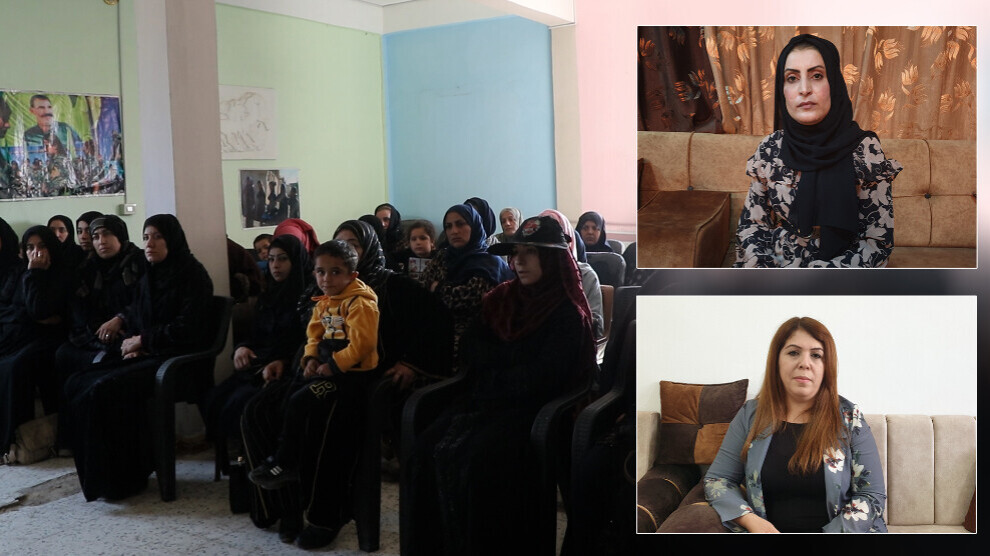Women’s health campaign continues in Raqqa
The women’s health campaign launched in Raqqa by the Health Committee and the Zenobiya Women's Community aims to raise awareness of women’s health.

RÎM MIHEMED
Raqqa- Several months ago, the Zenobiya Women's Community and Health Committee in the Raqqa city of North and East Syria launched a health campaign for urban and rural women. As part of the campaign, many meetings in cities and villages about the dangers of child marriages, the damages of C-sections on women, the health effects of smoking and many more.
Speaking about the ongoing campaign, the Raqqa Assembly Health Committee member Neyruz Müslim said, “We decided to focus on five health issues that concern women after analyzing reports we received from hospitals, clinics and health centers. We determined that the most important of the issues affecting women’s health are child marriage, C-section, smoking, physical hygiene and environmental cleaning.”
“According to the reports we received three months ago, the number of natural childbirths was 100 and the number of C-sections was 95. The rate of natural childbirths and C-sections was close to each other,” Neyruz Müslim said, “Caesarean section is the surgical procedure by which one or more babies are delivered through an incision in the mother's abdomen, often performed because vaginal delivery would put the baby or mother at risk. However, most women prefer a cesarean delivery for fear of labor pain.”
The effects of smoking
Underling that the rate of smoking is very high in their society, particularly among women, Neyruz Müslim said, “The percentage of women who smoked was lower years ago. However, the percentage is very high today. Smoking has negative effects on health, particularly on the health of pregnant women and breastfeeding mothers. We aim to raise awareness about the health effects of smoking.”
Women demanded the campaign to be extended
Khawla Al-Issa, member of the Zenobiya Women’s Community, said, “We launched our campaign several months ago. We worked coordinately with the Health Committee. We first carried out awareness-raising activities for pregnant women and breastfeeding mothers about the damages of C-sections on women. We held meetings in cities and villages with the support of the communes, committees and peoples’ assemblies. Many women attended our meetings. Women demanded the campaign to be extended so our campaign continues.”
